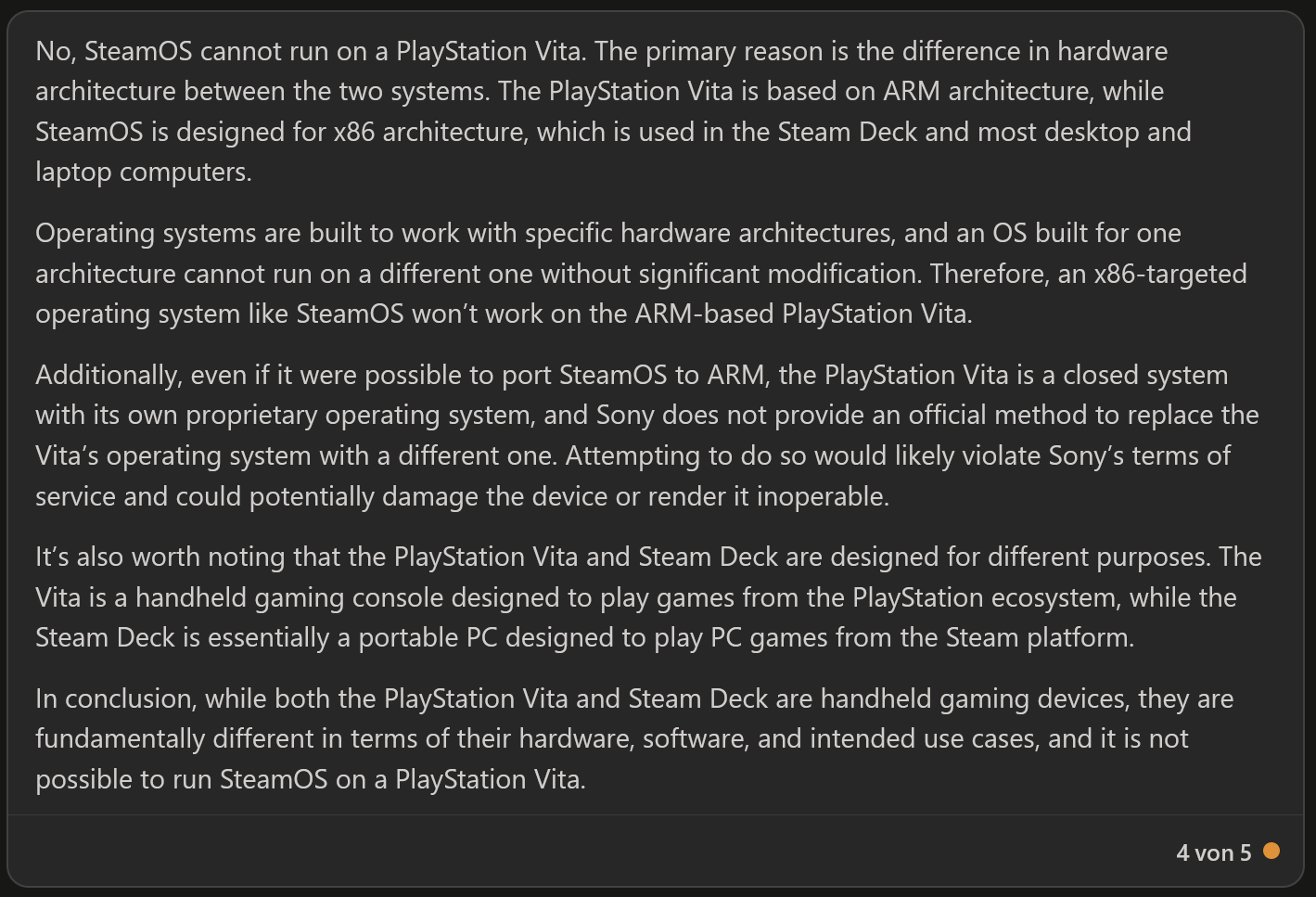Valve is playing the long game, they can only win after the Steam Deck.
Other manufacturers already started to jump on the handheld bandwagon (sadly only windows for now) and once more devices will run SteamOS they don’t even need to release new hardware anymore.
For me the suspend function alone makes the SteamOS superior compared to Windows.
oh my gosh, yes. for example, over the weekend, i brought deck to my parents. was playing Halo Wars before the drive. put deck to sleep (midgame), drove to my parents which takes an hour, hooked up the dock to their TV, turned deck back on, and BAM. playing Halo Wars right where i left off. i leave, and i do the same thing just in reverse. actually, come to think of it, i think im still in the middle of that game… Arbiter is kicking my ass
SteamOS: Alyx will be released before SteamOS 3
That’s very good news! The Steam Deck isn’t available in my country. It’s competitors are, but they lack Linux, which I think makes the Steam Deck special.
wait does this mean I will be able to install it on my PS Vita?!
Steam Deck is too big for my tiny hands!Then get bigger hands.
are you offering yours?
In case this is not a joke, Steam only runs on x86 processors. The Vita has an ARM processor. But I bet someone made some Linux that runs on the Vita. Just not with Steam games.
it’s not a joke, I don’t know shit about processors
it’s not a joke, I don’t know shit about processors
You could use google…
I did, “steam os run on vita” didn’t give me anything. I’m not about to learn all about processors to answer this simple question lol that’s silly
Can SteamOS run on PlayStation Vita and if not why not?
thanks, I still rather ask humans than an AI that doesn’t know how to bake a cake
apple made a wine for arm to x86 translation, i forget the name.
Rosetta. But part of the CPU had x86 translation functions built in to help so not as useful here.
Wine and Rosetta are fundamentally different things. Wine is a reimplementation of Windows APIs on Linux, whereas Rosetta is hardware emulation (famously, Wine Is Not an Emulator).
The equivalent of Rosetta on Linux is QEMU, and specifically qemu-user-static.
The thing about hardware emulation, though, is that it has a non-trivial processor overhead. Apple Silicon gets away with it because it’s a very fast chip which has been designed partly with hardware emulation in mind. Trying to emulate x86 on some generic off-the-shelf mobile ARM chip is not going to give great results.








